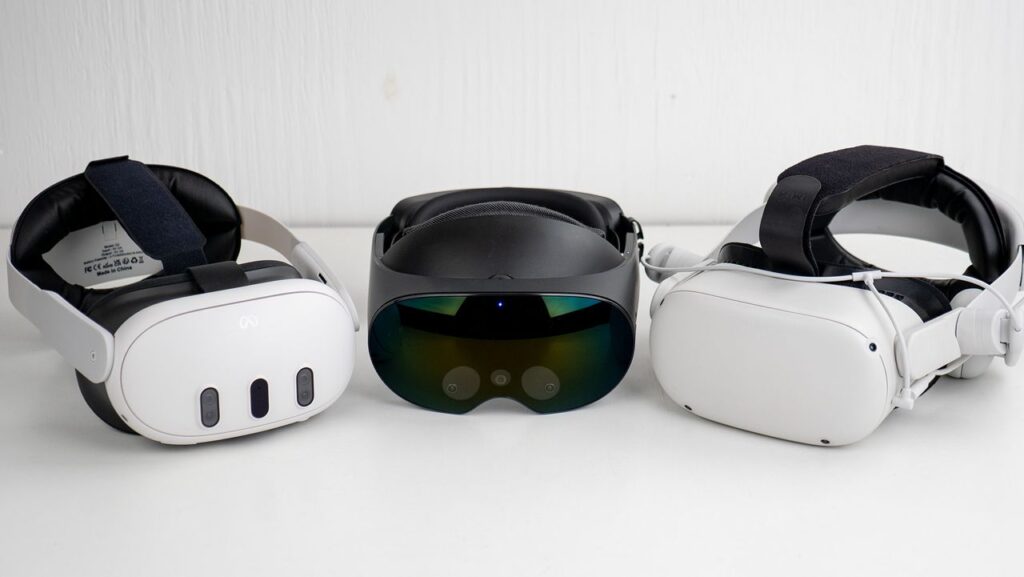The Metaverse is at a crossroads. For years, Meta has been pouring resources into building this immersive digital world, aiming to define the next generation of online interaction. But recently, things have shifted. Meta has made a bold move, essentially splitting its Metaverse strategy in two and handing the reins of its core operating system, Horizon OS, to a new leader. What does this mean for the future of XR (Extended Reality) and Meta’s ambition to dominate the space? Buckle up, because this is where things get interesting.
A House Divided: Meta Splits the Metaverse

The big news is the internal restructuring. Meta is essentially separating its Metaverse initiatives. One part will focus on building hardware platforms, like the Quest headsets, and developing the underlying technology like Horizon OS. The other part will be dedicated to building social experiences and content within the Metaverse. This split is a clear signal that Meta recognizes the need for focused leadership and expertise in both areas. It’s like separating the engine builder from the race car driver – both are crucial, but they require different skillsets.
This division also means a new boss is in charge of Horizon OS. While the specific details of the new leadership structure are still unfolding, the implication is clear: Meta is putting a high-powered executive in charge of developing and growing the platform. This isn’t just a reshuffling of decks; it’s a conscious effort to inject fresh ideas and renewed vigor into the operating system that will power Meta’s (and potentially other companies’) XR devices.
Why the Split?
Why this sudden shift? There are several potential reasons. First, the Metaverse is a massive undertaking. Trying to manage both the technological foundation (the OS) and the user-facing content within a single organizational structure may have become unwieldy. Second, focusing Horizon OS under dedicated leadership allows for a more streamlined development process. They can now focus solely on making the OS more robust, user-friendly, and developer-friendly. Finally, it’s likely a strategic move to better compete with Google’s Android XR, which poses a significant threat to Meta’s dominance in the XR space.
Horizon OS: Meta’s Secret Weapon Against Android XR
Android is the undisputed king of mobile operating systems, and Google is aggressively pushing Android XR as the standard for VR and AR devices. Meta knows that to maintain its position in the XR market, Horizon OS needs to be more than just a platform for Meta’s own hardware. It needs to be a compelling alternative for other manufacturers.
By giving Horizon OS its own dedicated leadership and resources, Meta is signaling its intention to open up the platform. They likely aim to attract third-party hardware manufacturers by offering a well-supported, feature-rich, and customizable operating system. This could include features like enhanced hand tracking, improved spatial audio, and more seamless integration with other devices.
Building an Ecosystem
The key to Horizon OS’s success will be its ability to attract developers. A vibrant ecosystem of apps and experiences is essential to attracting users and hardware manufacturers alike. Meta likely plans to invest heavily in developer tools, documentation, and support to encourage developers to build for Horizon OS. This could involve creating a more standardized development environment and making it easier to port existing apps to the platform.
Taking a page from Microsoft?
Think of it like Microsoft’s strategy with Windows. Windows powers countless devices from different manufacturers, creating a massive ecosystem. Meta is likely hoping to achieve something similar with Horizon OS, becoming the dominant operating system for XR devices, regardless of the hardware brand.
Top-Level Firepower: Investing in the Future
Putting a new, high-powered executive in charge of Horizon OS is a significant investment in the future of the platform. This person will be responsible for setting the strategic direction, driving innovation, and building relationships with hardware manufacturers and developers. They’ll need to be a visionary leader with a deep understanding of the XR landscape and the ability to execute on Meta’s ambitious goals.
Beyond leadership, Meta will also need to invest in research and development. This could involve exploring new technologies like advanced AI, improved optics, and more immersive haptic feedback. The goal is to create an operating system that is not only functional but also truly innovative and exciting for users.
Beyond Gaming and Entertainment
While gaming and entertainment are important aspects of the XR market, Meta is likely looking beyond these areas. Horizon OS could potentially power applications in education, healthcare, manufacturing, and other industries. By expanding the use cases for XR, Meta can create a larger and more sustainable market for its operating system.
The Road Ahead: A Battle for the Metaverse
Meta’s decision to split its Metaverse strategy and put a new boss in charge of Horizon OS is a clear sign that the company is taking the threat from Android XR seriously. This move signals a renewed focus on building a robust, open, and developer-friendly operating system that can compete with Google’s offering. The road ahead will be challenging, but Meta has the resources and expertise to make Horizon OS a major player in the XR market.
The battle for the Metaverse is just beginning, and Horizon OS is Meta’s top-level firepower in this fight. Whether they can successfully challenge Android XR remains to be seen. However, one thing is certain: the future of XR will be shaped by the competition between these two powerful platforms. Keep an eye on this space – it’s going to be an exciting ride.
